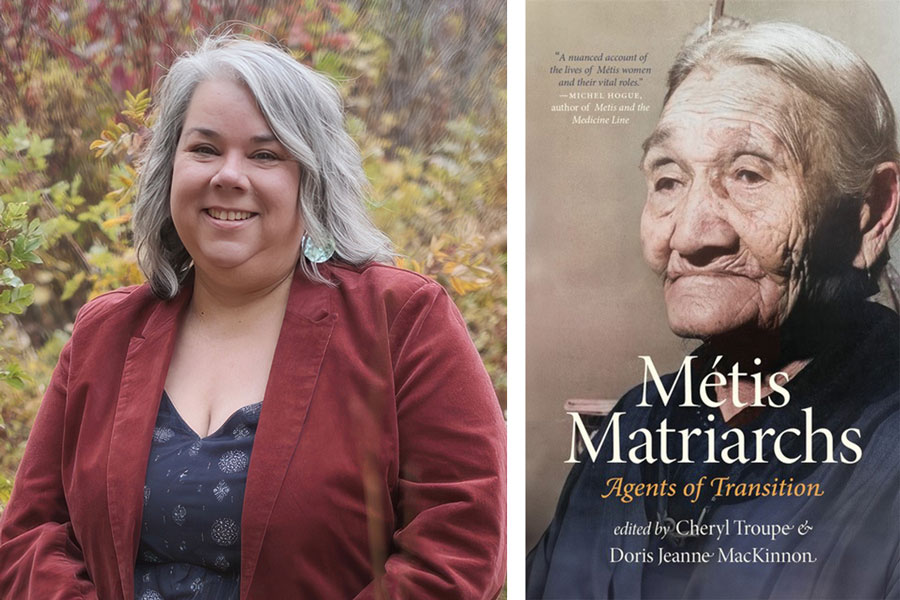
Bringing Métis women’s history to the forefront
USask historian discusses new book during National Indigenous History Month
By Kristen McEwenA University of Saskatchewan (USask) historian is sharing some of the influential ways Métis women have contributed to history through a book of essays.
Métis researcher Dr. Cheryl Troupe (BA’01, MA’10, PhD’19), an assistant professor in the Department of History, co-edited and published the book, Métis Matriarchs: Agents of Transition.
Alongside co-editor Dr. Doris Jeanne MacKinnon (PhD), they gathered, edited and wrote essays about Métis women, their perspectives and contributions to history.
“It’s recognizing that women’s voices are not necessarily uplifted in the historical record,” Troupe said. “Their everyday lives offer a lot in terms of traditional knowledge and teachings—the importance of cultural values.
“Seemingly mundane stories are actually really important,” she added. “They tell us a lot about the Métis experience over a broad geography, but also over a wide timeframe.”
Métis political figures such as Louis Riel and Gabriel Dumont are widely recognized for their contributions and leadership during significant historical events such as the Red River Resistance and the North-West Resistance. Many people do not know about the work that was done by Métis women, Troupe said.
“(This book) was a way to get some of those women—the mothers and grandmothers of so many—have been influential in communities and are doing the behind-the-scenes work to keep families together and to keep families strong and pass on those traditions.”
Troupe wrote the last chapter of the book about Métis activist Nora Cummings. Born in Saskatoon in 1938, Cummings was a young woman in many political moments in the city throughout the 60s and 70s, Troupe said. Cummings was also involved in the creation of the Saskatchewan Native Women’s Movement.
“My chapter with (Nora) is really about looking at the lessons she learned from her mother, her grandmother and her aunties in her life—and how she took those lessons about learning to care for her family and how she used those in her social and political activism,” Troupe said.
Métis Matriarchs has received recognitions and accolades since its publication in September 2024.
Troupe and MacKinnon won the Indigenous History Book Prize for Métis Matriarchs from the Canadian Historical Association on June 3. The book was also shortlisted for the Indigenous Peoples’ Publishing Award at the 2025 Saskatchewan Book Awards.
Earlier this year, Troupe also received the Order of Gabriel Dumont gold medal—one of Métis Nation’s highest civilian honours. She was recognized for her work as a dedicated community builder, accomplished researcher, scholar, advocate and champion for Métis history, culture and stories.
Métis people have been foundational in the creation of Western Canada, Troupe said.
“Our experiences are significant and haven’t always been brought to the forefront,” Troupe said. “(This book) is one example of how we can do that, and how we can make sure that these histories are widely shared—and people are aware of these histories and experiences.”
Article originally published at https://artsandscience.usask.ca


